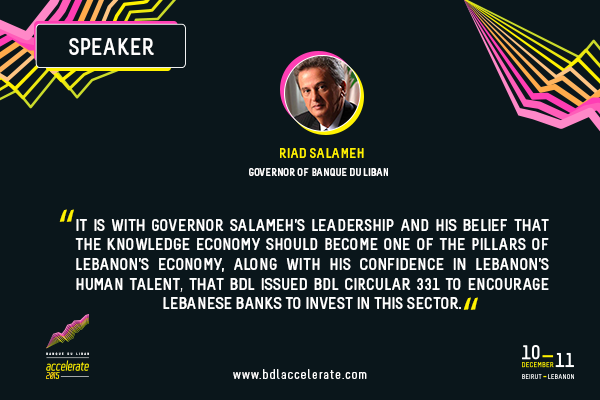Marianne Hoayek – BDL
Written by

Marianne Hoayek
Banque du Liban, Director of the Executive Office
Governor Riad Salameh assigned Marianne Hoayek to the challenging task of restructuring Banque du Liban (BDL) in 2005. This huge endeavor was the starting point for Hoayek’s tenure at BDL. 10 years later, she is the Executive Director of the Executive Office that reports directly to the Governor.
The main mission of the Executive Office is to manage and follow up on the organization and reform projects that fall within BDL strategic orientation, and to coordinate their implementation in addition to promoting Corporate Social Responsibility. It is also the Executive Office that oversees the implementation of BDL Circular 331 that encourages Lebanese banks to invest in the startup ecosystem that resulted in US $400 million startup funds. This ambitious project aims to create employment opportunities, and generate income and economy growth.
BDL Circular 331 looks to reverse the trend of Lebanon’s university graduates leaving the country to look for jobs elsewhere. Hoayek stated in her speech at BDL Accelerate 2014 [insert link to script] that Lebanon has the human capital and talents required to develop a startup ecosystem but what was missing were the appropriate tools and financing hence why BDL decided to intervene. It is through BDL Circular 331 that many companies now have the chance to bring their innovative ideas to life not only through the financial aspect, but also by backing and supporting boot camps and training programs that would support and help entrepreneurs develop further.
You can find Marianne Hoayek’s speeches from BDL Accelerate 2014 at the below links:
To watch her speech at BDL Accelerate 2014 Opening Ceremony click here.
To read her introduction speech click here.
To read her closing note click here.
Or watch her closing note click here:



